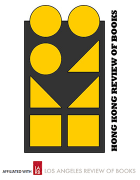Chris Maden reviews An Yu’s haunting and intelligent debut novel, centred on relationships in modern China.
An Yu, Braised Pork (Harvill Secker, 2020), 240pp.
An Yu’s debut novel, Braised Pork, opens with a shock: one morning, Jia Jia finds her husband, Chen Hang, dead in his bathtub. He has recently returned from a trip to Tibet, but there is no clue to the cause of his death, only a piece of paper with a drawing of a fish with a man’s head – the “fish-man” – which corresponds to a dream Chen Hang related to Jia Jia on his return. The fish-man and the dream launch Jia Jia on an odyssey which explores relationships, spirituality, and alienation in modern China.

Central to the book are the relationships which surround Jia Jia, and those in which she becomes involved. At one end of the spectrum some verge on the transactional: both the deeply conservative way in which women, especially those in relationships with well-to-do men, are expected to be “suitable” brides, to turn a blind eye to philandering, to be subservient bearers of children rather than soulmates – but also the modern way in which husbands are mere providers, to be jettisoned at one’s convenience. At the other end of the spectrum, there are those in which the couple are more than just a going concern, but active partners in each other’s lives, sharing the rough and the smooth. Between these extremes, there are the contrasts between modern and superstitious attitudes, between familial jealousy and casual sexuality, between those relationships we are born to, those we choose, and those that arise through chance – or karma.
The latter half of the novel is set in Tibet. The spirituality in the novel, however, is nothing to do with Tibetan Buddhism (which is not mentioned), but is rather developed through the dream which Chen Hang recounted to Jia Jia. The fish-man is central to the dream: elusive and enigmatic, he is nevertheless a guide who, in the dream, nudges Jia Jia to a discovery of both her family’s own past, and her coming to terms with the sacrifices she made when she married.
Underlying this is the social setting of modern China. Braised Pork is in no way a political critique but, perhaps because of the particular trajectory of China’s recent history, alienation and estrangement, although hardly unique to modern China, are never far from the surface. Here is a scene that speaks volumes:
Jia Jia … looked in the direction of the car park. The guard was playing on his phone when a red Porsche Panamera stopped at the barrier. The car honked, startling the boy, and he walked up to the window and said something to the driver with a nervous questioning expression on his face. Whatever the boy said seemed to have angered the driver and he started driving slowly towards the barrier. The boy panicked and slapped his hand on the door of the car.
“You fucking idiot!” Jia Jia heard the driver yell from his car. …
By the time Jia Jia had made her way back to the bar, the red Porsche was gone, and the boy sat there on his chair without his phone, turning his head to follow every car that passed by on the road.
This poignant and telling incident is not an isolated one. Isolation is never far below the surface and Jia Jia’s own isolation, the dream, and the relationships that surround her, set in the cold Beijing winter and the even colder environs of Tibet, combine to produce a compelling backdrop to Jia Jia’s quest.
But it isn’t all coldness; there is also human warmth. The novel takes its title from one of northern China’s most homely dishes, akin to shepherd’s pie in England or char siu faan in Hong Kong, and the dish comes to be a symbol of everything that Jia Jia’s life lacks. That theme is reinforced by homely but original comparisons that are sprinkled through the book:
It was not really the reading that gave away her sobriety but rather the focussed serenity of her expression: at once curious and determined, like a child who was just beginning to read her first novel.
Since the last time she had come here … a few shops had moved from one floor, one corner, to another, like a pack of cards that had been shuffled.
She smiled and examined the fine lines at the corners of her eyes and thought for a moment that she saw them stretching away, like grapevines.
“Until next time,” Jia Jia said. The words came out of her with a certain stickiness, like honey being pulled out of a jar.
One I liked was “His palm was rough like ginger” – only to see it reused fifty pages later.
Braised Pork is An Yu’s first novel, and the choice of subject is spot on: simple enough not to fall victim to overambition (the reviewer speaks from experience), yet complex and nuanced enough to say something original. Not unlike Milan Kundera, the novel is structured as a kaleidoscope of interwoven vignettes that are more than the sum of their parts. With some very minor exceptions, the writing was tight, with few wasted words. The only surprising moment was an abrupt change of point of view, which was more of a typesetting error than a writing flaw. And, although the story is not about modern Chinese mores, what it says in passing is both telling and insightful.
Chris Maden, when not mentoring start-up companies to earn his keep, is a novelist, chair of the Hong Kong Writers’ Circle, and a contributor to the Hong Kong Free Press.
